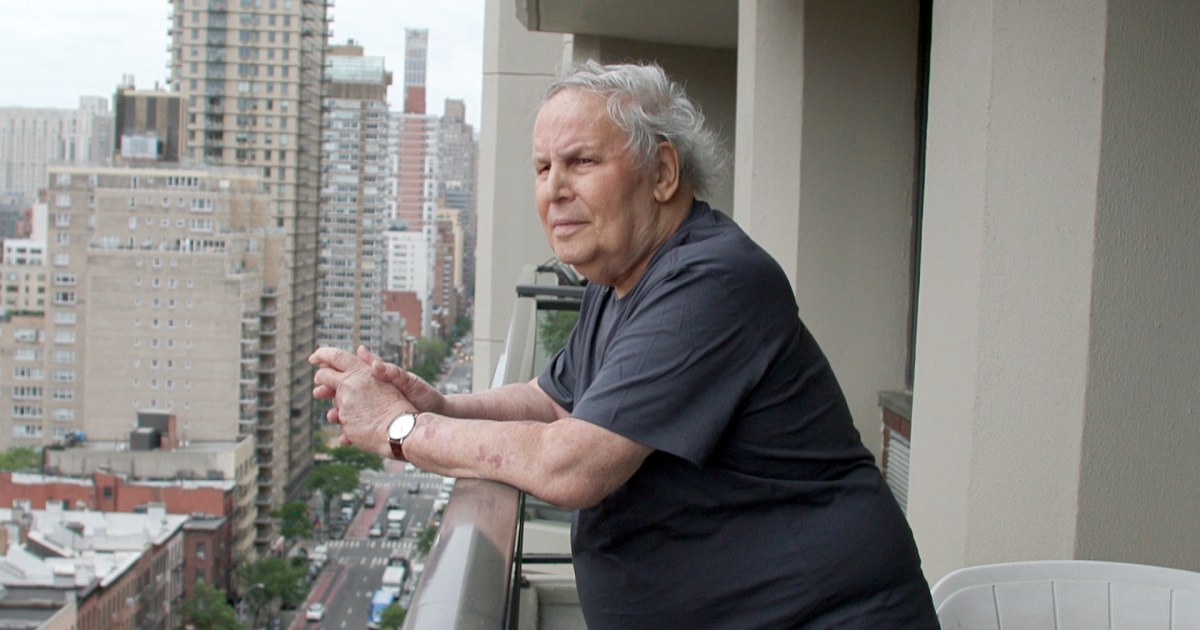
By the time Michael Rosenblum’s prostate cancer was discovered, it was already at a late stage. He’d initially sought medical help because of excruciating back pain, but, during an exam, doctors found a tumor on his spine and tests revealed a skyrocketing prostate-specific antigen, or PSA, score. Chemotherapy didn’t help much, so when doctors offered the opportunity to be in a clinical trial for a new experimental treatment, Rosenblum jumped at it.
The trial was investigating a new, potentially groundbreaking type of treatment for prostate cancer, a therapy that specifically targets a protein on the cancer cells. The treatment, part of a new class of liquid radiation drugs, obliterates most prostate cancer cells without hurting the surrounding tissue.
“It’s wonderful. I have no symptoms or anything,” said Rosenblum, a 75-year-old retiree, who was diagnosed four years ago. He participated in the clinical trial at Memorial Sloan Kettering Cancer Center in New York. “My PSA went from 100 … to zero.”
Higher PSA levels suggest that prostate cells are growing, which may indicate cancer.
Results from the trial Rosenblum participated in were released Thursday ahead of the annual meeting of the American Society of Clinical Oncology. The study finds that the new drug reduced the risk of death by 38 percent in patients with advanced prostate cancer. Progression of the disease was reduced by 60 percent.
Prostate cancer is the second-leading cause of cancer deaths in men in the U.S., after lung cancer, according to the American Cancer Society. And rates of aggressive prostate cancer have been increasing in recent years.
When cancer is confined to the prostate, surgery plus radiation therapy is standard treatment for tumors deemed to be aggressive. Those with metastatic cancer — meaning the cancer has spread from the initial tumor site to other parts of the body — may need even more intense therapy, including removal of the testicles, testosterone-blocking therapy and chemotherapy.
The trial included 831 men with metastatic cancer who had all been previously treated with hormone therapy and chemotherapy. Two-thirds of the men were randomly assigned to get standard therapies, plus the new medication. The other third, the comparison group, received only standard therapies.
The patients who received the new drug got it intravenously once every six weeks.
The new drug isn’t a cure, but after about two years, it did result in a median improvement — meaning 50 percent of patients did better and 50 percent did worse — of four months before the disease started to progress again, and in survival overall, according to the report.
In fact, some of the patients who received their last dose in February 2020 still haven’t seen their cancer worsen, said the study’s lead author, Dr. Michael Morris, an oncologist and a prostate cancer section head at Sloan Kettering.
“This trial was studying a drug in men with very few treatment options,” Morris added. “They had metastatic prostate cancer and basically had progressed through most of the life-prolonging therapies for it.”
The medication, LU-PSMA-617, works by targeting a protein, prostate-specific membrane antigen (PSMA) that is found on most prostate cancer cells, no matter where they occur, Morris explained.
“Those cancer cells could be in the bones, the lymph nodes or the soft tissues, and the drug seeks them out and docks to protein. It drags a payload with it so when it hooks up to PSMA it is delivering a radioactive source that it brings inside the prostate cancer cell and kills it and neighboring cancer cells as well.”
It’s a remarkable achievement. Very few drugs have been able to show improvement for that level of prostate cancer.
Unfortunately, because the medication doesn’t find all the prostate cancer cells, it isn’t a cure in these late stage patients, Morris said. It’s possible, however, that if the drug is given to patients at an earlier stage of the disease, it might result in a cure, he said.
Another benefit to the new treatment is that very few patients had severe side effects compared to chemotherapy. Some experienced dry mouth, nausea and vomiting, which was serious in only 1 to 2 percent of patients. About one-fourth developed anemia and low platelet counts.
“I think this is a landmark study,” said Dr. Amar Kishan, an assistant professor and chief of genitourinary oncology service at the University of California, Los Angeles, who has no connection to the trial. “It’s a remarkable achievement. Very few drugs have been able to show improvement for that level of prostate cancer.”
This treatment is “like sending a tactical nuclear warhead” into the cancer cells, ” Kishan said. “It actually releases radiation over short distances and will nuke anything in its path,” she said.
The next step, Kishan said, would be to look at whether the drug might be even more effective in patients with earlier stage cancers. “But that should be done in a clinical trial,” he added.
This new treatment “has opened up a totally different mindset,” said Dr. Ash Tewari, a professor at the Icahn School of Medicine at Mount Sinai and system chair of the Milton and Carroll Petrie Department of Urology at Mount Sinai, who is not associated with the study. “The beauty of this treatment is it is a molecule that attaches to PSMA and releases a radiation bomb, all without damaging normal cells.”
The study was funded by the drug company Novartis, which is expected to seek approval from the Food and Drug Administration later this year.
Source: | This article originally belongs to Nbcnews.com










